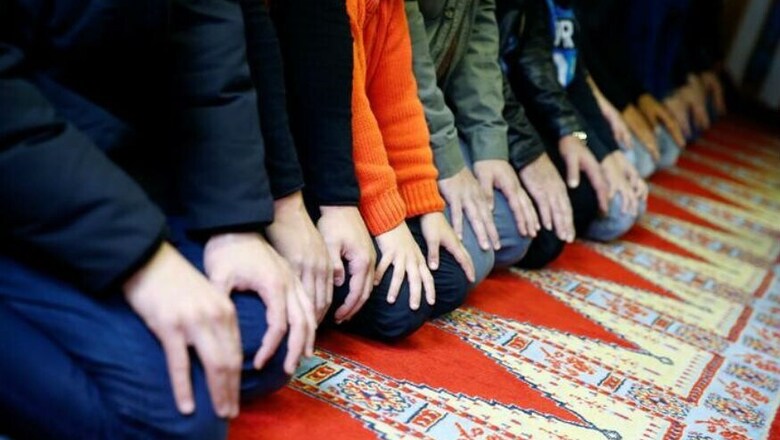
views
Berlin: Germany has no plans to introduce an 'Islam law' codifying the rights and obligations of Muslims, a government spokesman said on Monday, dismissing an idea floated by allies of Chancellor Angela Merkel ahead of federal elections in September.
Merkel, who will seek a fourth term in what is expected to be a close-fought ballot, has come under fire for opening Germany's doors to refugees, more than one million of whom - mostly Muslims - have entered the country over the past two years.
Seeking to boost support for the chancellor's conservatives, senior Merkel ally Julia Kloeckner stoked the integration debate at the weekend by calling for stricter rules for Islamic preachers and a ban on foreign funding of mosques.
Merkel's spokesman Steffen Seibert dismissed the idea, which Kloeckner - who is deputy leader of the chancellor's Christian Democrats (CDU) - and other senior party members want to enshrine in an Islam law.
"Such a law is now not an issue for government business," Seibert told a news conference, stressing the high regard Merkel's ruling coalition has for religious freedom in Germany.
While stopping short of calling for an Islam law, Merkel said in her weekly podcast on Saturday that refugees in Germany must respect tolerance, openness and freedom of religion.
The message backed up a less compromising tone on integrating migrants that Merkel set at a CDU party conference in December, when she called for a ban on full-face Muslim veils "wherever legally possible".
By talking tougher on integration, Merkel is also seeking to reclaim support her party lost last year over her refugee policy to the anti-immigration Alternative for Germany (AfD) party, which punished the CDU in regional elections in 2016.
The AfD has lost voter support this year, hurt by infighting that has sent its ratings down to around 8 percent from a high of 15.5 percent at the end of 2016.
In the Netherlands, Prime Minister Mark Rutte used a similar tactic to win re-election this year, seizing back the initiative from anti-Islam populist rivals by matching some of their tough rhetoric on immigration.
He told the country's half-million ethnic Turks that they should integrate and accept Dutch views on freedom of speech or "get lost" after some had been filmed behaving aggressively toward a reporter during a demonstration.
"Our norms and values are all or nothing: you can't pick and choose," he said in response to the footage in an interview last September.




















Comments
0 comment